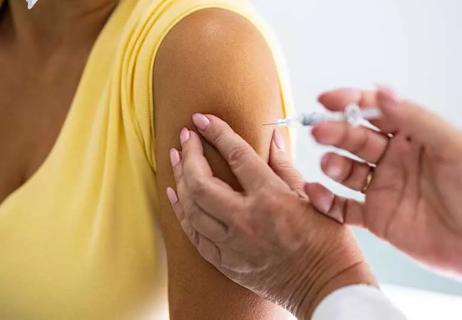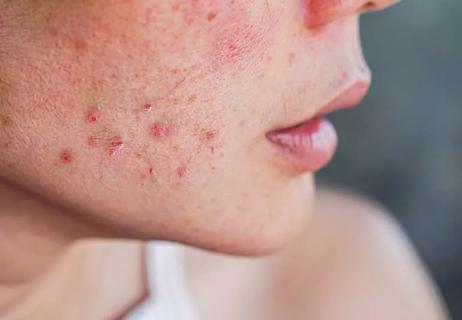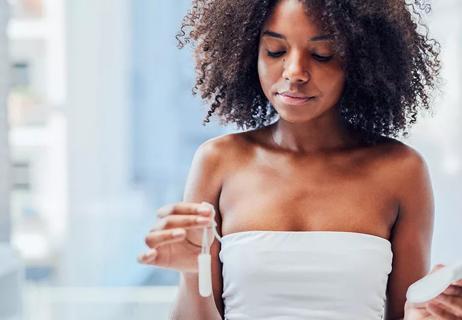Find out what’s normal menstrual bleeding and what’s not

Periods can be puzzling. Some people have two or three days of bleeding, while others see Aunt Flo for an entire week. And is it normal to have really light — or really heavy — bleeding each month?
Advertisement
Cleveland Clinic is a non-profit academic medical center. Advertising on our site helps support our mission. We do not endorse non-Cleveland Clinic products or services. Policy
Ob/Gyn Erin Higgins, MD, explains that a menstrual cycle, which is counted from the first day of one period to the first day of the next period, varies for everyone. Menstrual flow (bleeding or spotting) may last two to seven days each month. And while short and long periods can be normal, what’s normal for you may not be normal for someone else.
“Your period probably won’t be exactly the same month after month, but you should see a pattern,” says Dr. Higgins. “The length of bleeding and flow should be consistent.”
Small changes in period length are OK, but get any big changes checked out. “A little variation, like from three days to four days, is normal,” Dr. Higgins says. “But if you used to have three-day periods and now they’re six days, check in with your doctor.”
Once your period is done, you shouldn’t see spotting or flow again until your next cycle. If you’re getting bleeding or spotting between periods, call your gynecologist. Between-period spotting could be a sign of:
The rate of your menstrual flow depends on many factors, including the thickness of your uterine lining and hormone levels. Some people have light periods while others have a heavy flow. Both can be normal.
Advertisement
“Like period length, your period flow should be somewhat predictable,” Dr. Higgins says. “If you used to have heavy periods and they become light, or vice versa, talk to your doctor.”
There are heavy periods, and then there are heavy periods.
“Your period is heavier than normal if you soak through a pad every hour for a few hours in a row,” Dr. Higgins says. “Large clots — like the size of a golf ball or larger — are also a sign that your bleeding is too heavy.”
This type of bleeding can get in the way of your life, but don’t assume you have to suffer through it. “Your doctor can help you figure out the cause of heavy bleeding and provide treatment if needed,” Dr. Higgins says.
Your period may be shorter and lighter if you use birth control that contains hormones. The hormones in these methods are progestin alone or a combination of progestin and estrogen. Hormonal birth control includes:
The patch, pill and ring are designed to be used for three weeks, each with one week off. During the week off, you usually have “withdrawal bleeding,” which resembles a period. Withdrawal bleeding is a result of the sudden drop in hormones. It’s different from a true period, which comes 10-14 days after ovulation.
Some people take the pill, patch or ring continuously, without the hormone-free week. If you do this, you probably won’t have any bleeding at all. If you’re interested in skipping the withdrawal bleeding, ask your doctor whether continuous hormonal birth control is safe for you.
If you’re on injectable contraceptives or using a hormonal implant or IUD, your periods may be lighter, too — the result of the thinning of mucous membrane that lines the uterus.
Preteens or teens who recently started menstruating might have unpredictable cycles and flow for a while. That’s because younger females have an immature hypothalamic-pituitary-ovarian (HPO) axis, which controls periods and menstrual cycles
“Once women reach their late teens or 20s, periods usually become more predictable,” Dr. Higgins says.
In the years leading up to menopause, many women experience changes in their period flow and cycle length. This time of transition is called perimenopause. It can last a year or two or several years.
Advertisement
If you’re in your 40s or 50s and your periods are suddenly unpredictable, perimenopause may be the reason. But play it safe and ask your doctor about any changes you notice.
Keep track of your periods with an app or a simple paper calendar. Take note of the rate of flow and when it shows up, so you’ll spot any changes right away.
Finally, see your gynecologist regularly and discuss your periods during your appointments. If anything seems weird to you, bring it up.
“Your period is a clue to what’s going on with your reproductive health,” Dr. Higgins says. “Your doctor wants to know the details so we can help you stay healthy.”
Advertisement
Learn more about our editorial process.
Advertisement

Look for signs of an underlying bleeding disorder

Although it can be alarming, it’s normal to experience blood clots during menstruation

Reasons for spotting can include menopause, uterine fibroids, PCOS and birth control

Hormonal changes are the likely culprits behind the aches and fatigue before your period

Irregularities in cycle length and flow aren’t a cause for concern

Hormone fluctuations impact oil and sebum production, creating painful, tender pimples

Typically, you can keep your appointment, let your gynecologist know and let your worries go

It depends on your menstrual flow, and a little trial and error

Type 2 diabetes isn’t inevitable with these dietary changes

Applying a hot or cold compress can help with pain